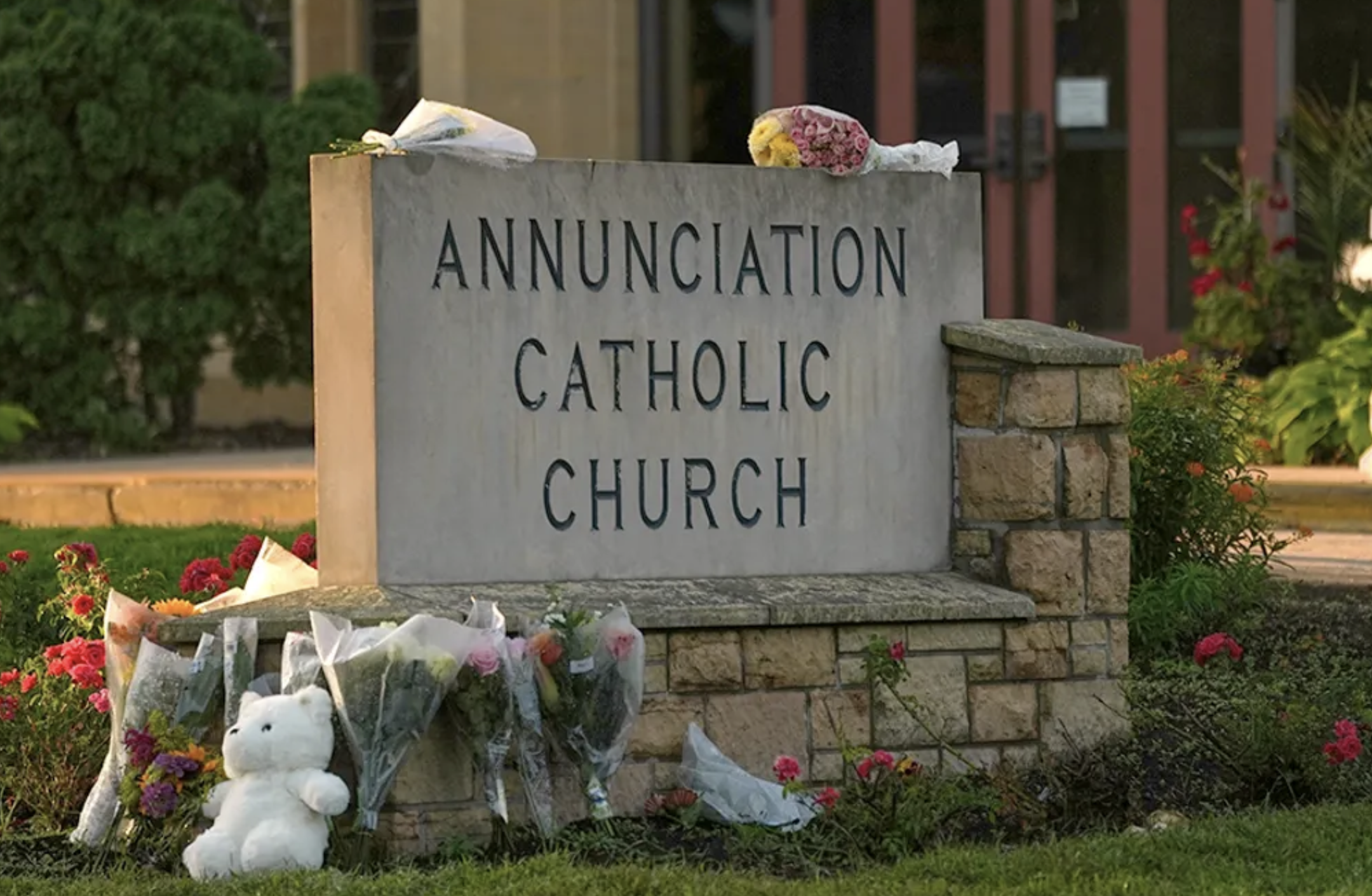How Could Someone Do Such a Thing?
Crosses, flowers, and other mementos are placed in front of Annunciation Catholic Church at a memorial after Wednesday's shooting at the Minneapolis church and school. (Abbie Parr/AP Photo)
Following the tragedy at the Catholic school in Minneapolis this past week, many people are asking how such a thing could happen—how someone could possibly be capable of such evil. The hard truth is that no one wakes up one morning suddenly capable of such a horrific act. Grave sin is never born in an instant. It grows slowly and silently in the heart of a person who has become accustomed to excusing smaller sins, who has chosen again and again to look away from the light of God and live in darkness.
Jesus warns us countless times in the Gospels: “Stay awake. Be vigilant. Remain sober and alert.” These are not the words of a strict master looking to catch us in our failures, but of a loving Savior urging us to guard our hearts against the destructive power of sin. The Lord knows that sin is never static; it grows, it multiplies, and it enslaves us if we allow it.
Every action, every word, every choice we make shapes who we are becoming. Every day we are either moving closer to God or further away from Him. Together, as families, parishes, schools, and communities, we either build up a culture of grace or a culture of sin. Sin builds on sin. Grace builds on grace. When we tolerate sin in ourselves, when we excuse it as “just small” or “not that bad,” we cooperate—whether we realize it or not—with the evil that eventually produces tragedies in the world.
This is why vigilance is so essential. To “be vigilant” does not mean living in fear or suspicion, but keeping our eyes fixed on Christ. It means living in His light, even when we are surrounded by darkness. It means choosing prayer over distraction, confession over excuses, sacrifice over selfishness.
We need to develop in our hearts a profound hatred of our own sins. That may sound strong, but it is necessary. If we treat our sins lightly, they will enslave us. But if we confront them honestly, confess them humbly, and fight against them daily, then God’s grace will free us. The Sacraments, especially the Eucharist and frequent Confession, are the weapons God gives us for this battle. Prayer, fasting, penance, acts of charity, and cultivating virtue are the habits that keep us awake and prepared.
No one is evil at their core. Every human being is created good, in the image of God. But the more we cooperate with sinful habits, institutions, and cultures, the more we make ourselves capable of greater evils. The more we cooperate with grace, the more we become saints—men and women who can bring peace, light, and healing into the world.
We live in a time and culture that often excuses sin, that mocks virtue, that downplays holiness. But Christ calls us to be different. He calls us to create a culture of grace. He calls us to build homes, parishes, and schools where holiness is lived, where prayer is natural, where sin is rejected, and where the love of God is the air we breathe.
Do not excuse sin. Abhor it. Fight it. Overcome it with God’s help. This is not something we do alone, but in the strength of Christ, with the grace of the Sacraments, and together as the Body of Christ.
Tragedies in the world remind us that evil is real. But they also remind us that holiness is possible—and necessary. We are called to be saints. We are called to bring the light of Christ into the darkest places. Stay vigilant. Remain in His light. Know the Lord with profound intimacy, and lead others to Him.

